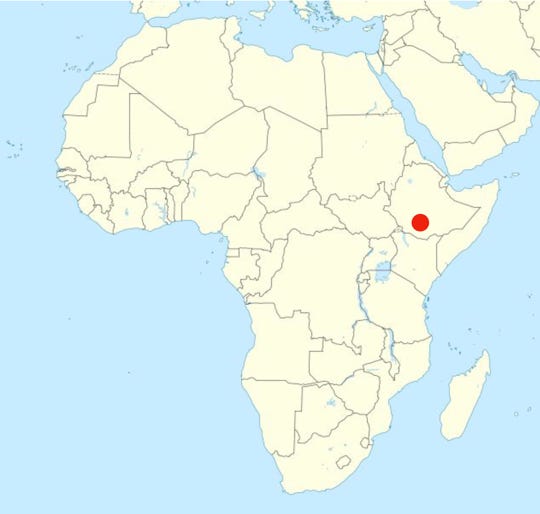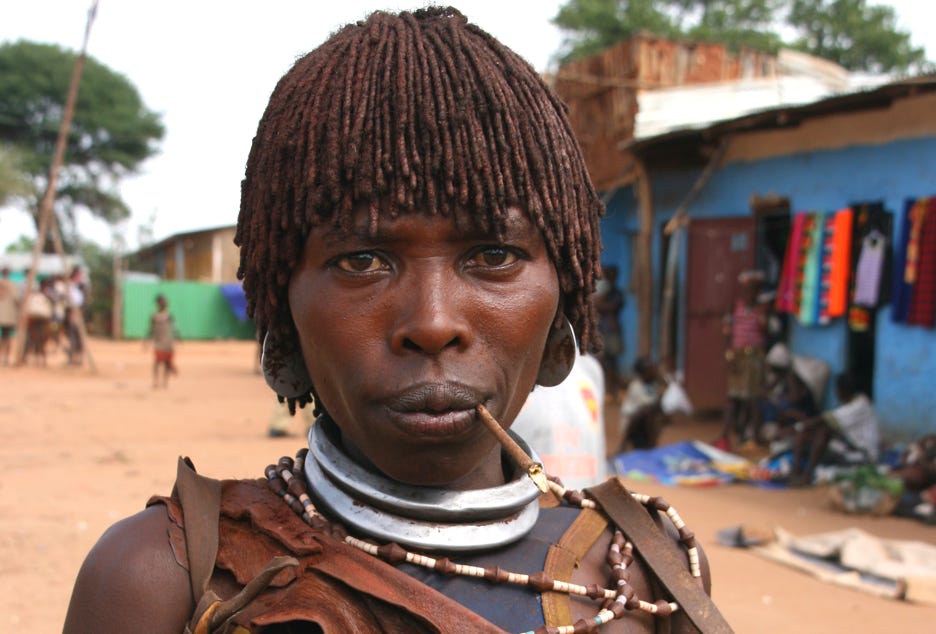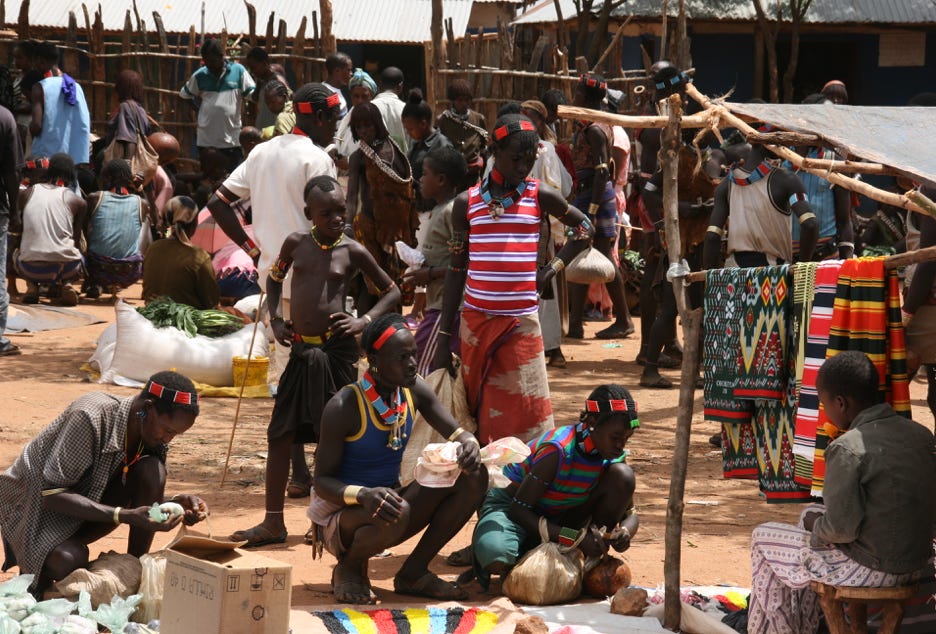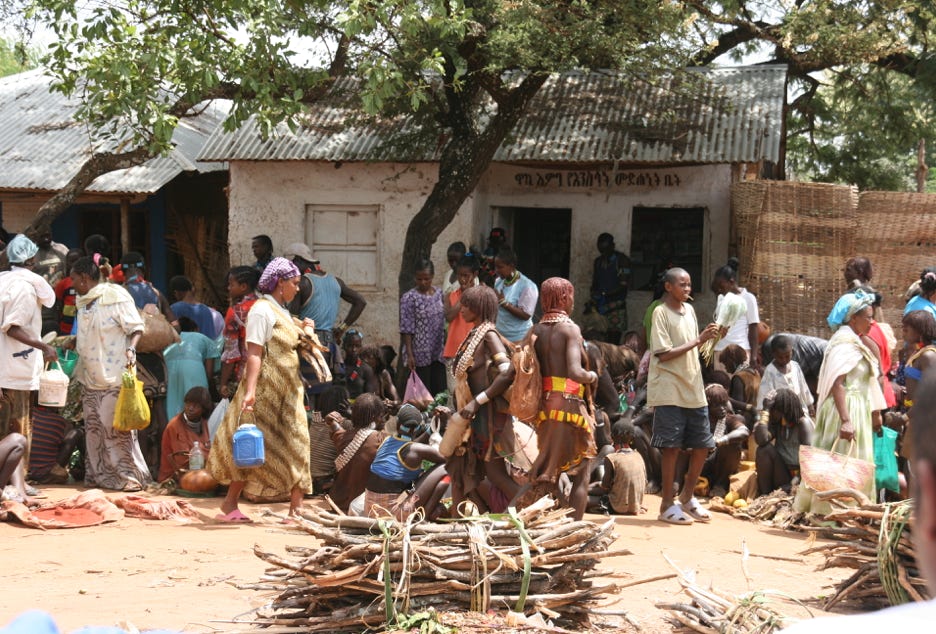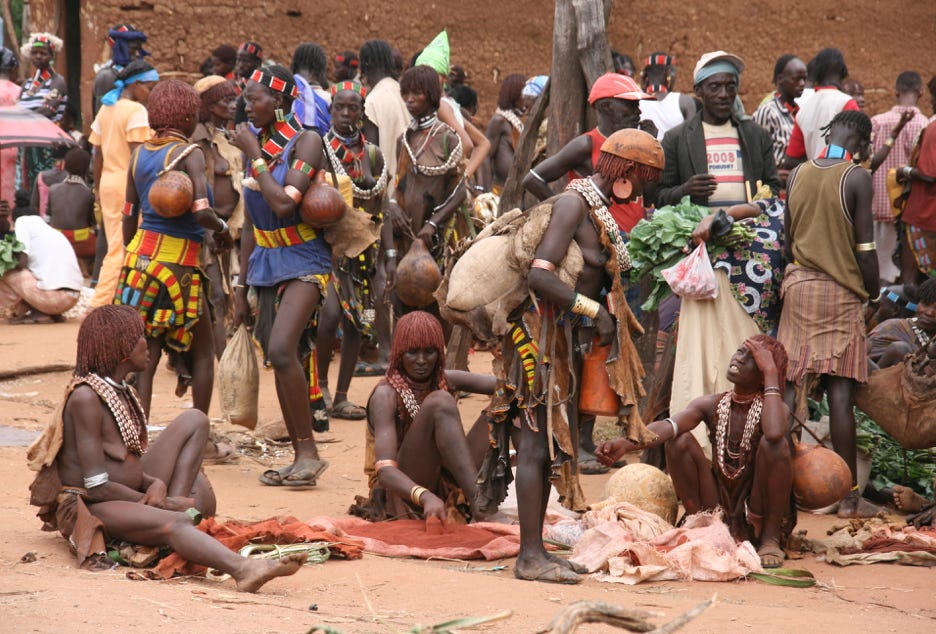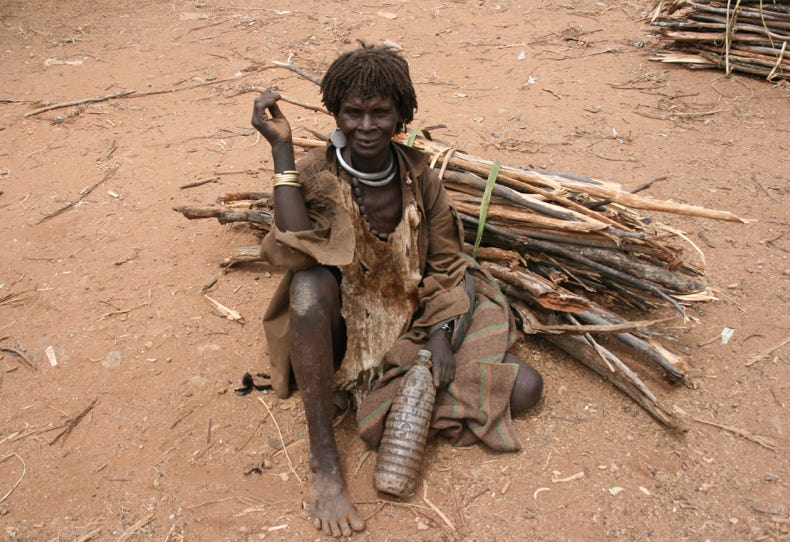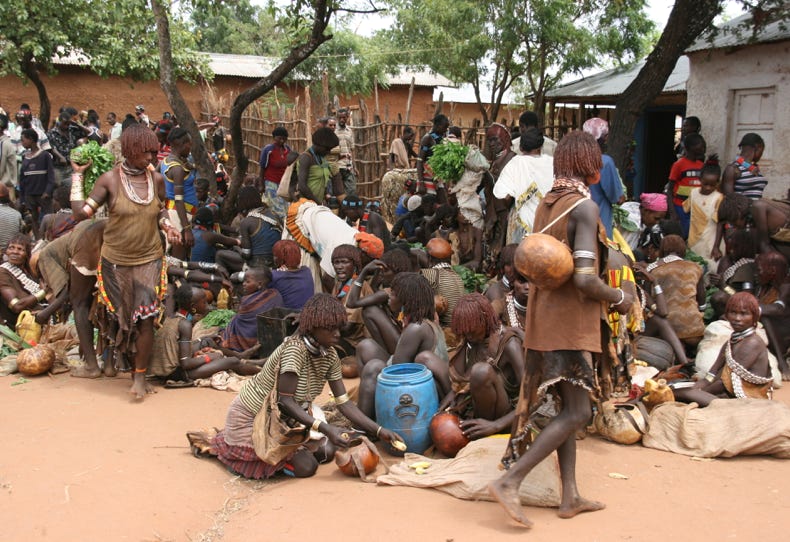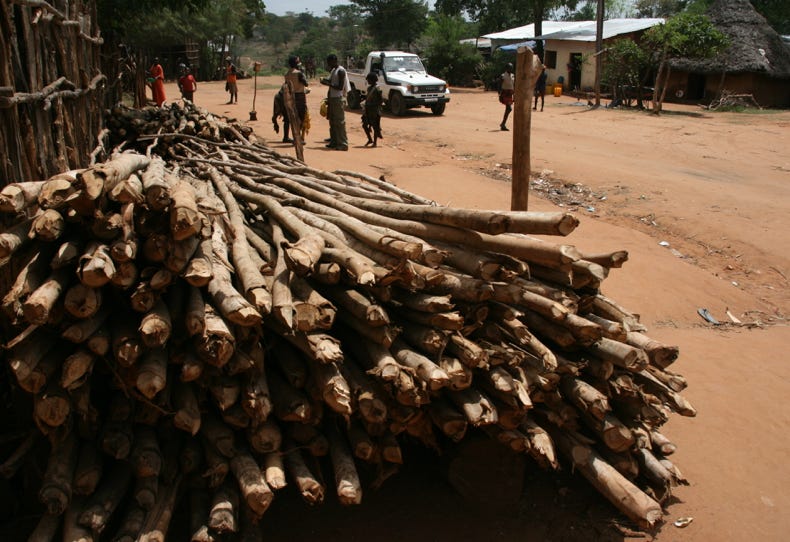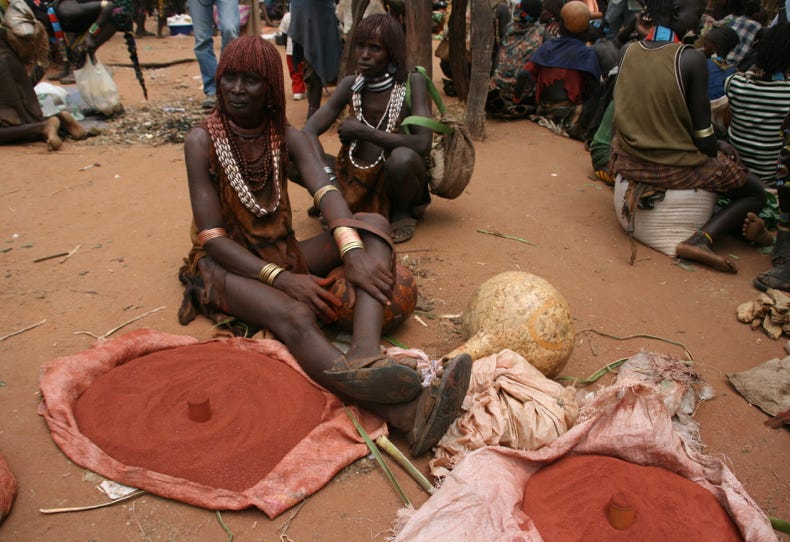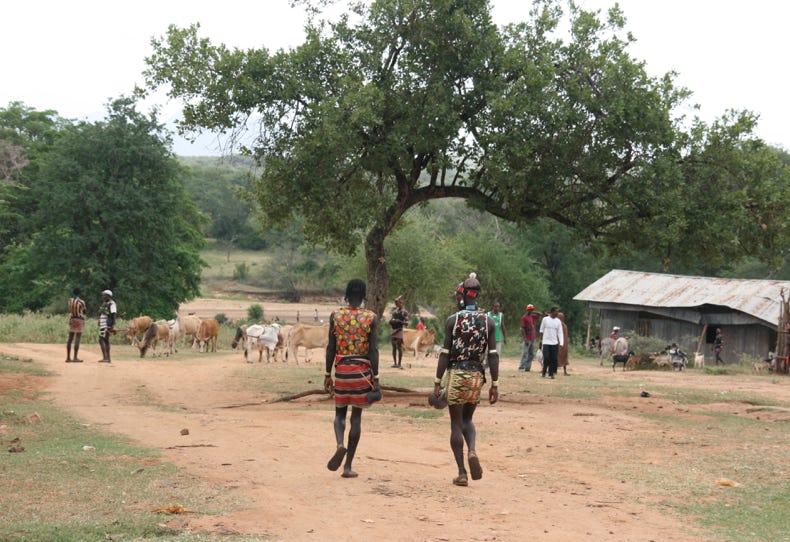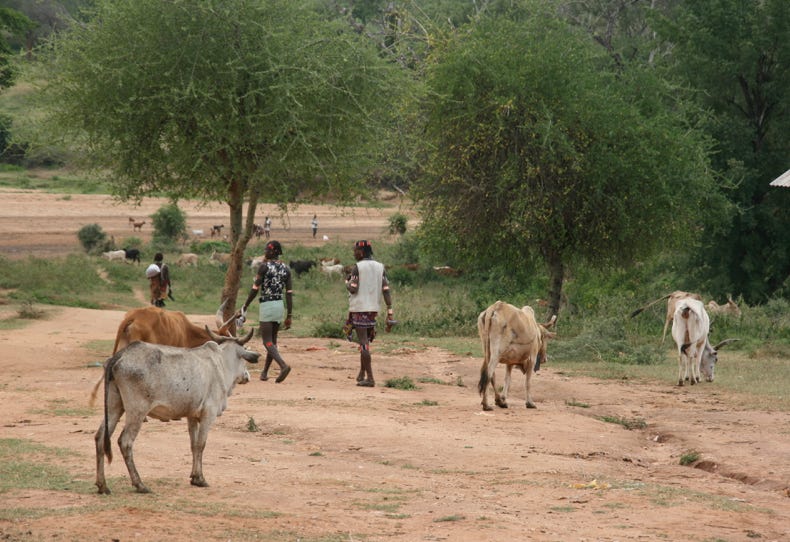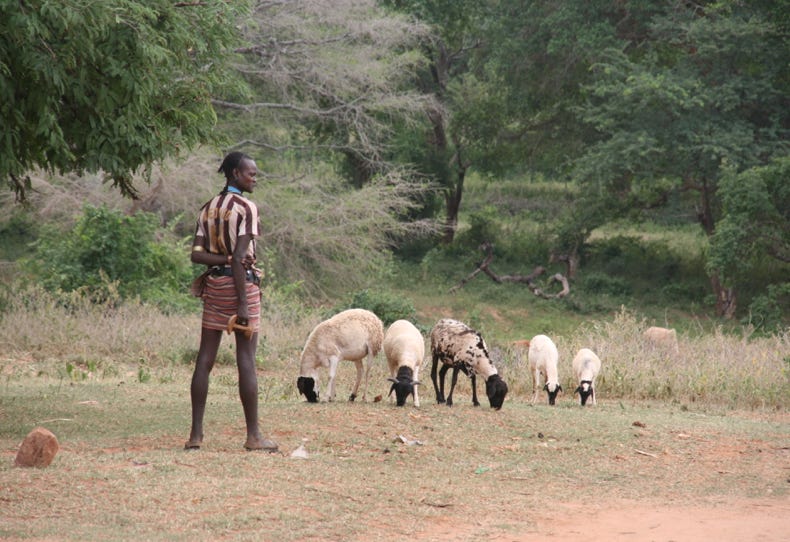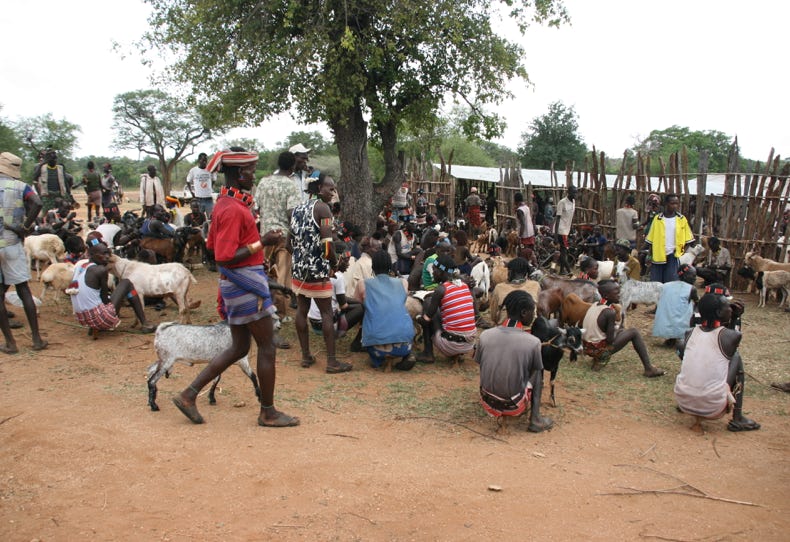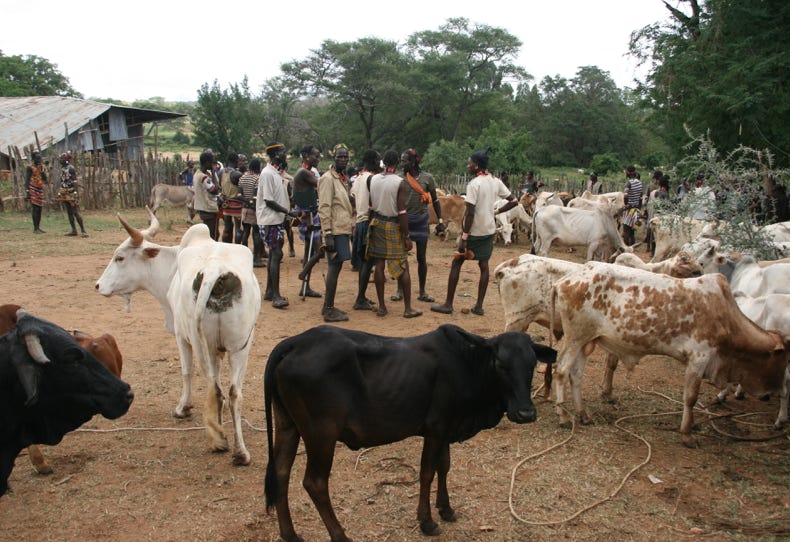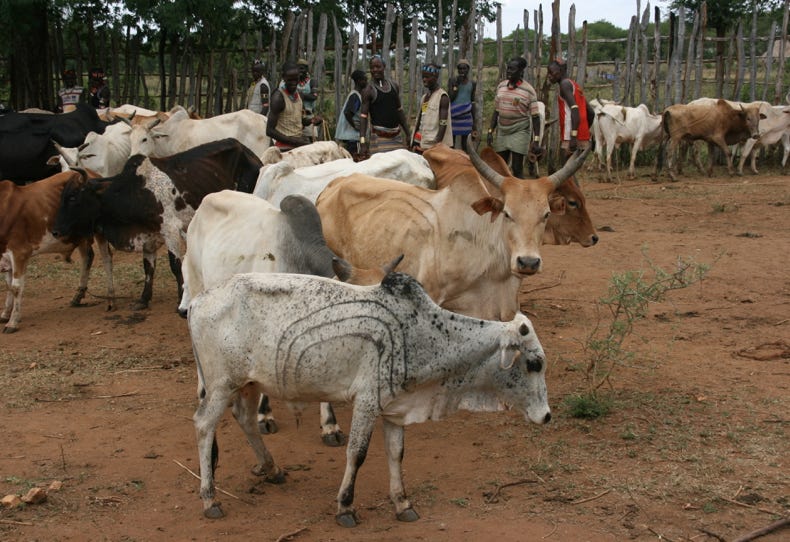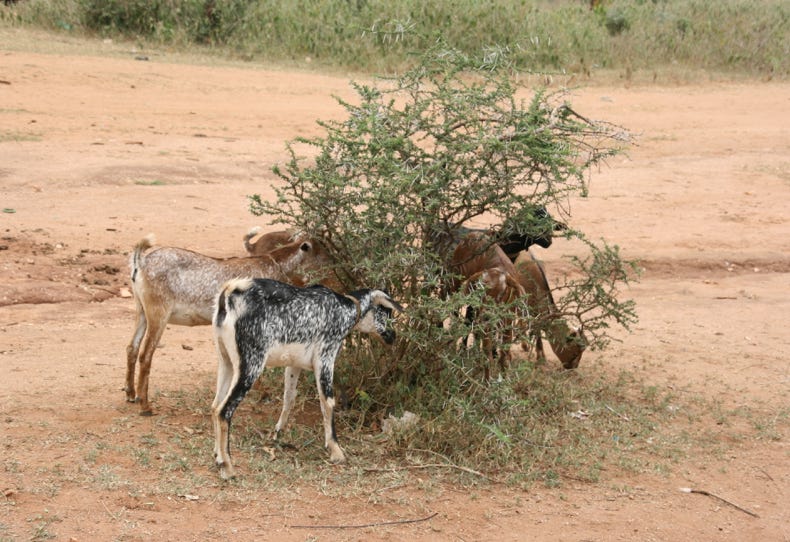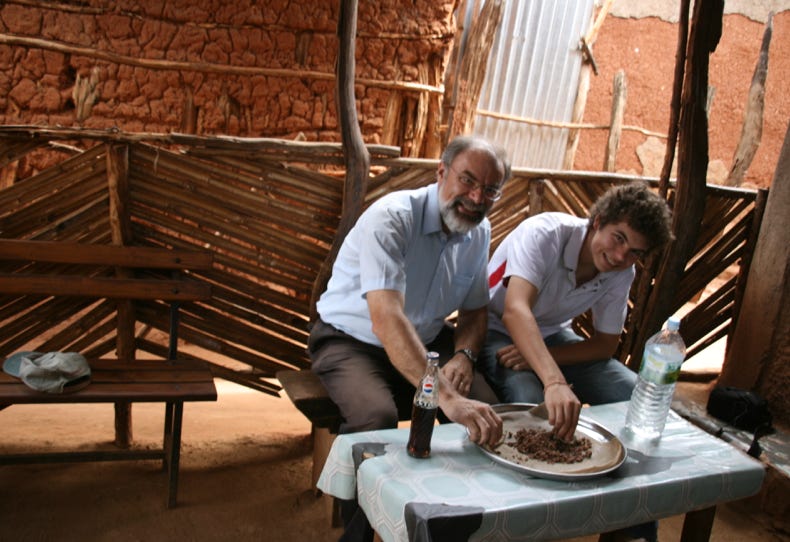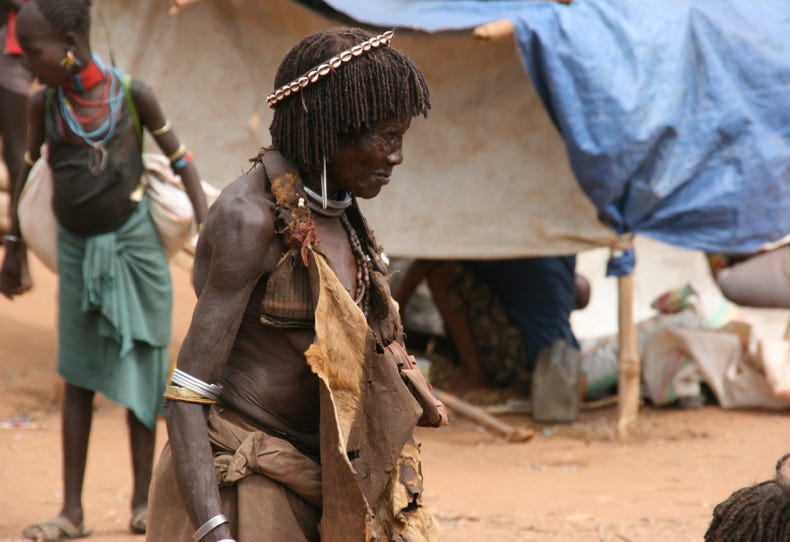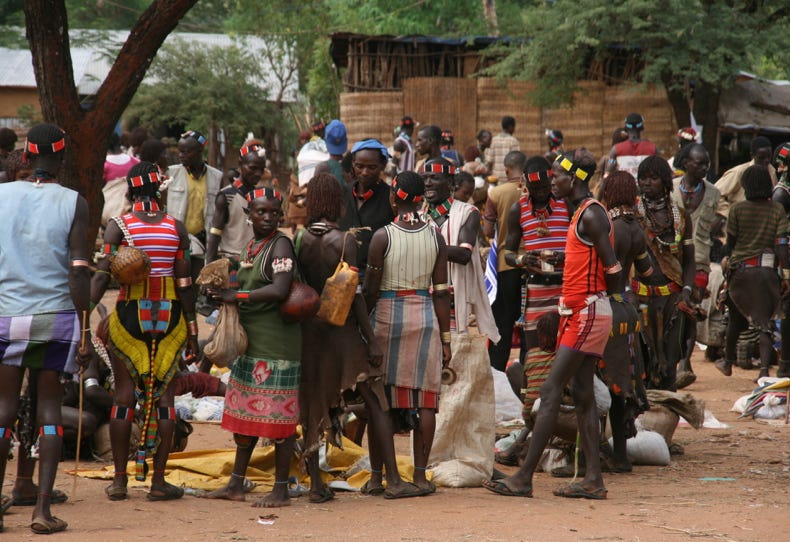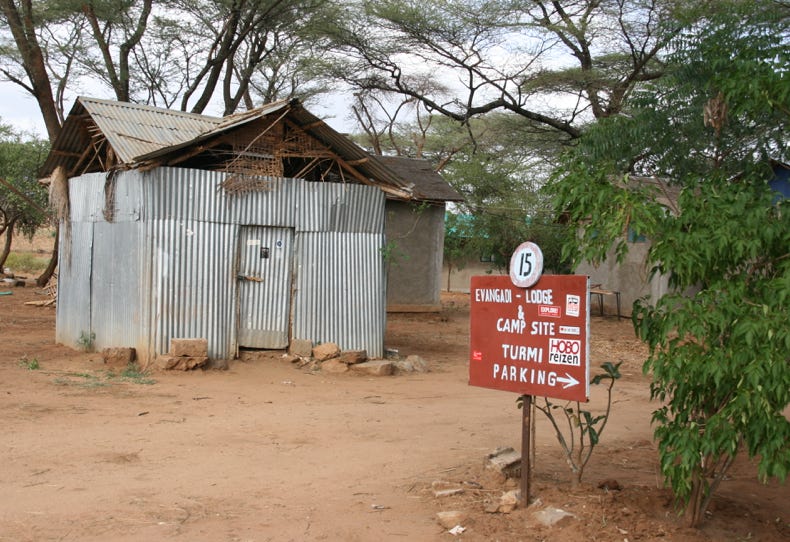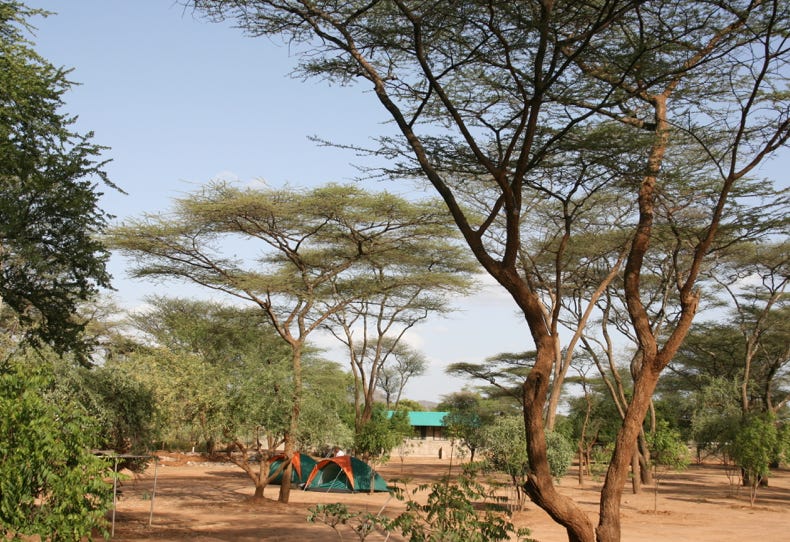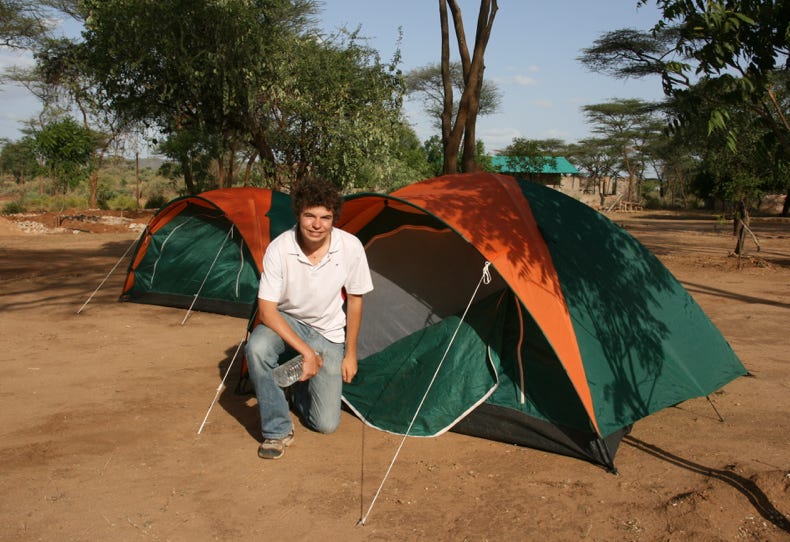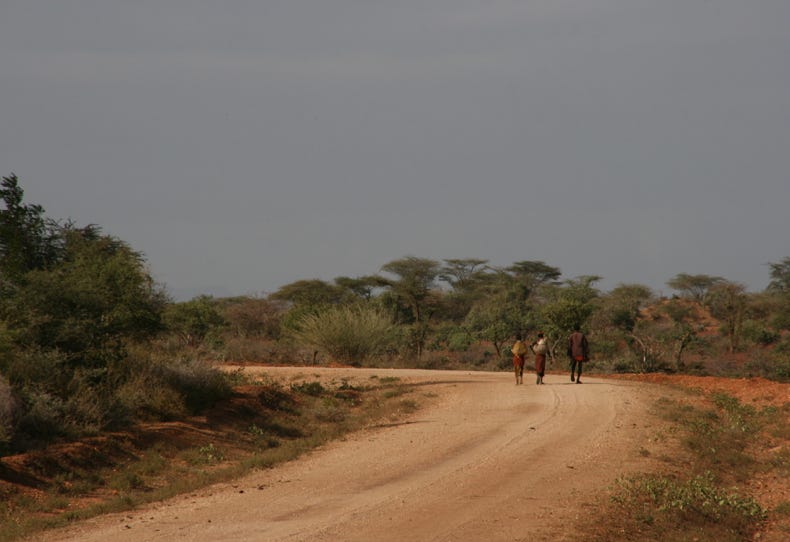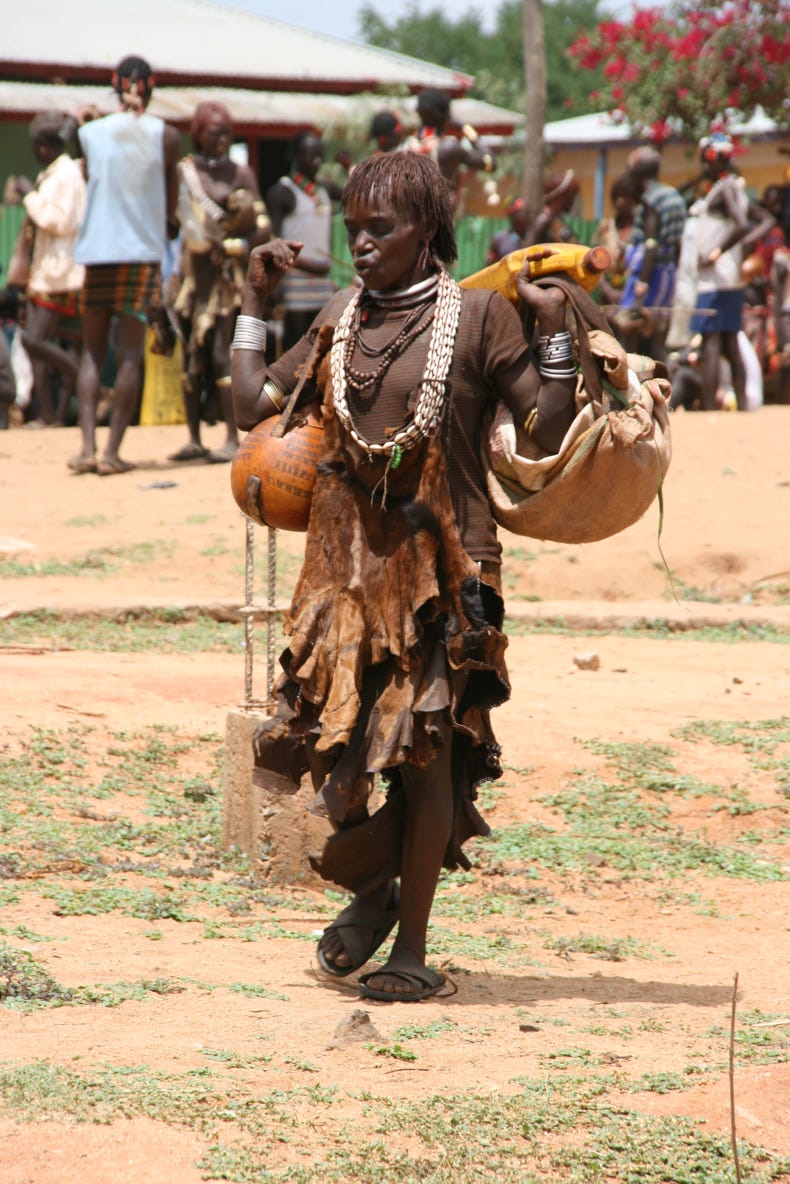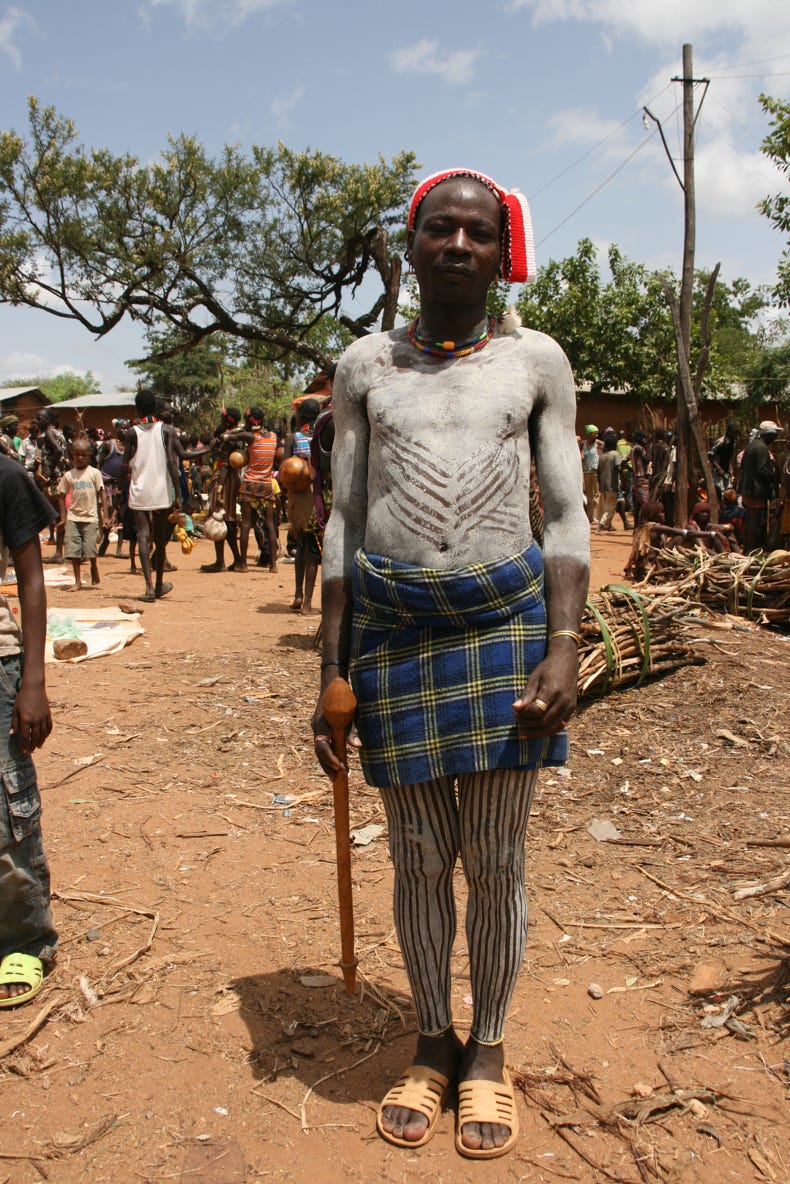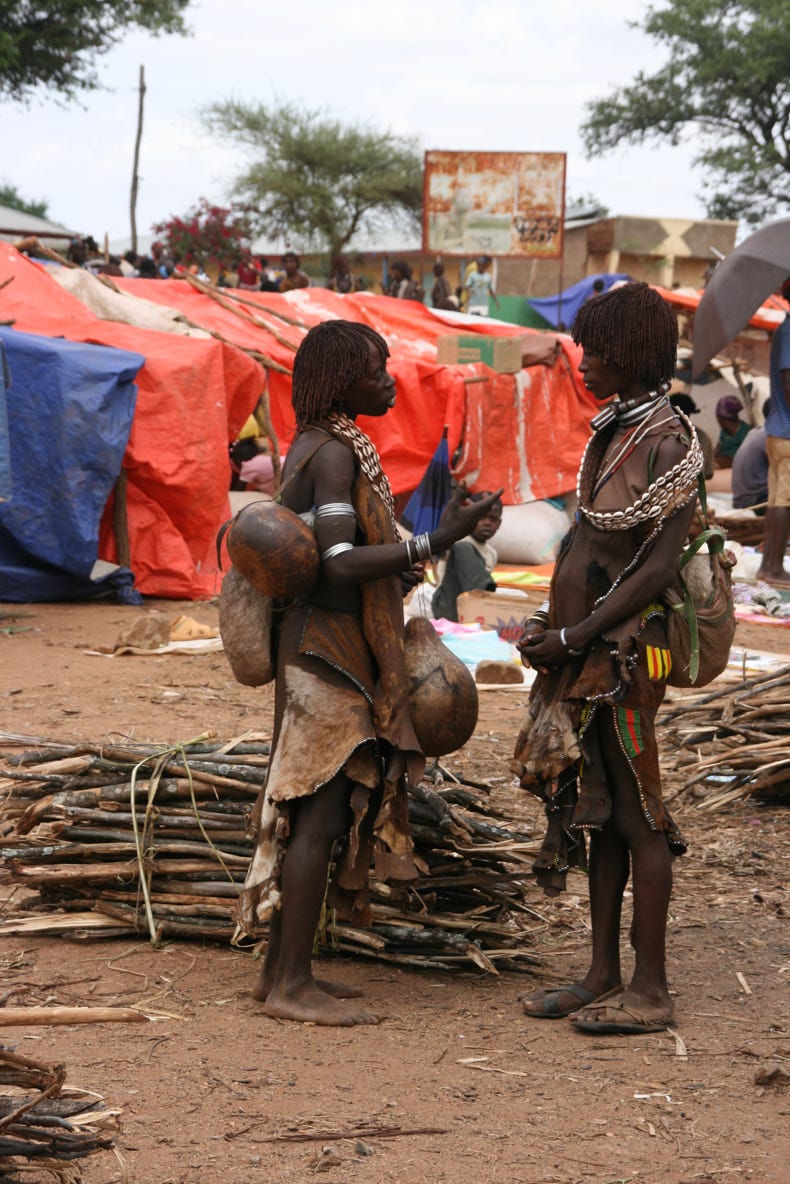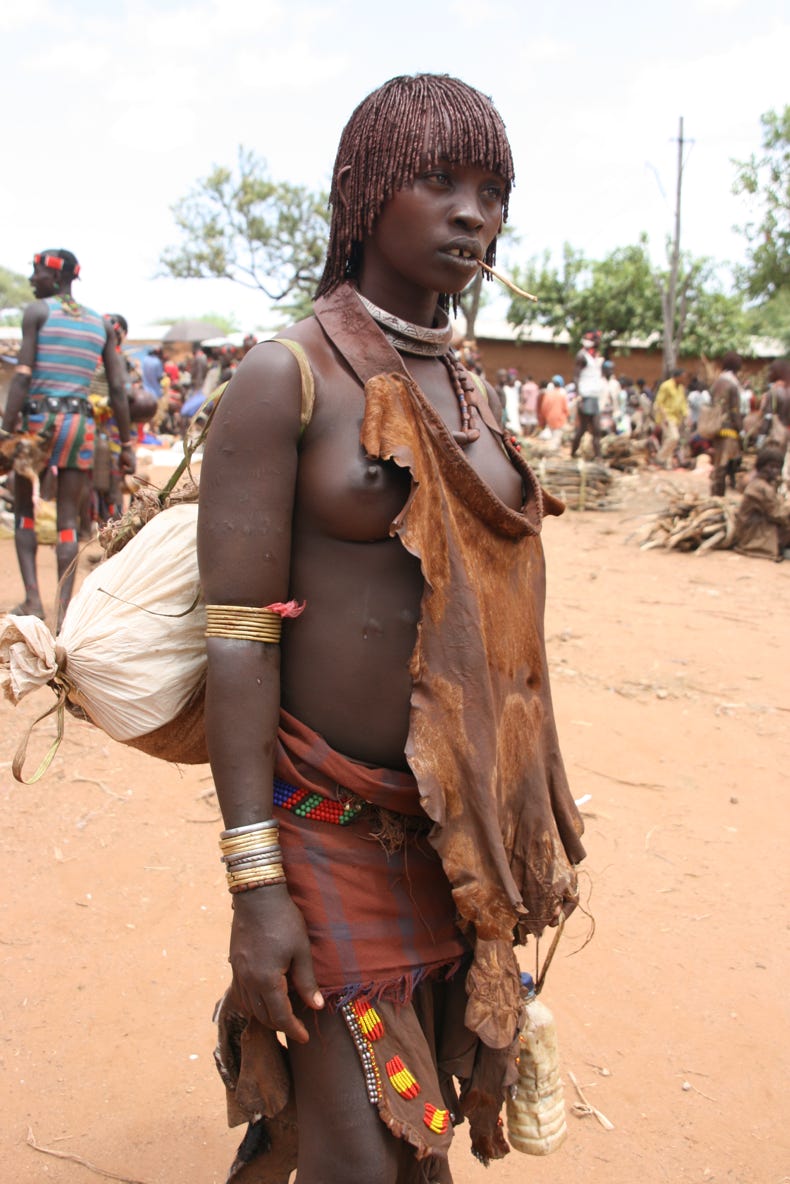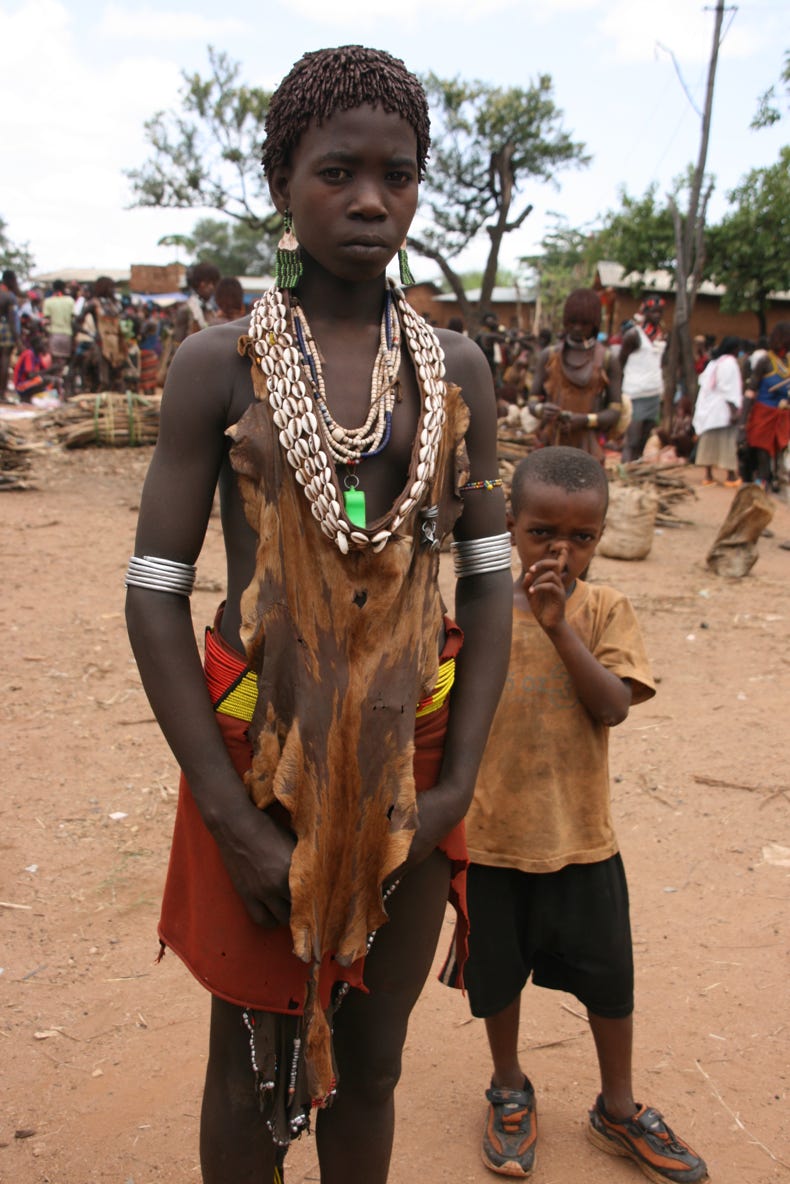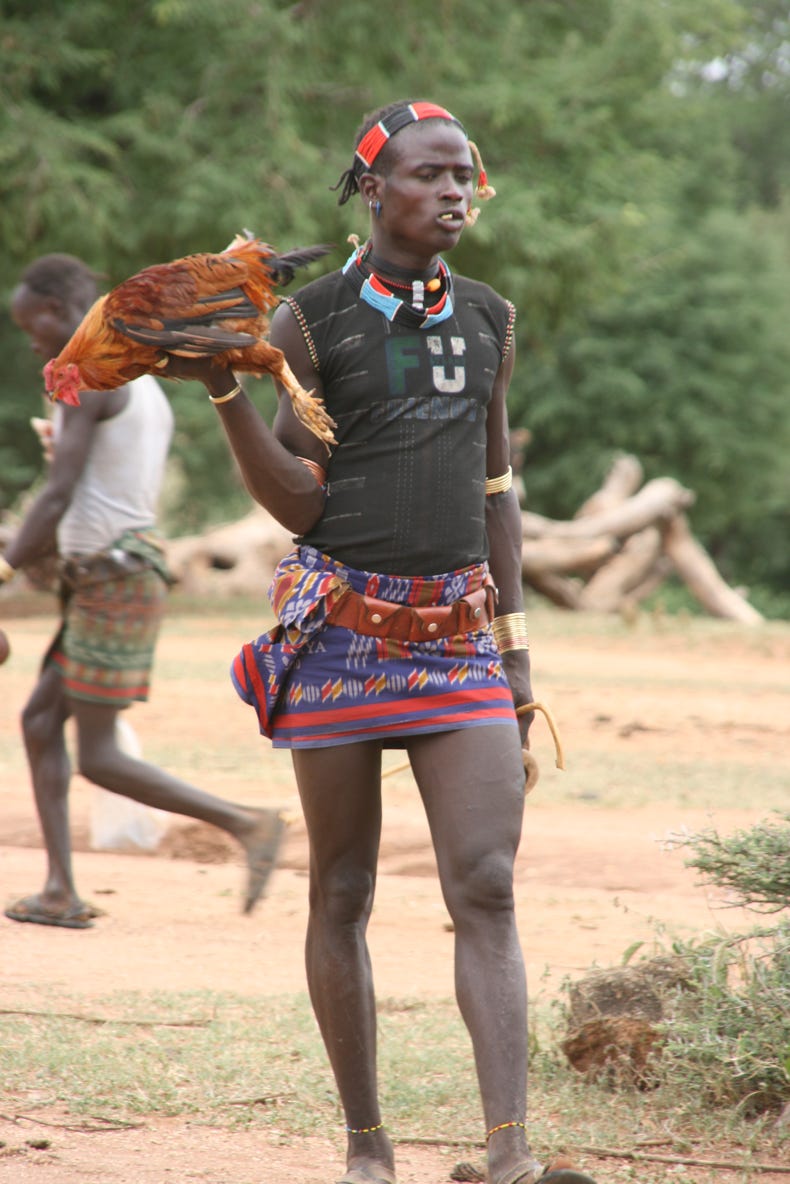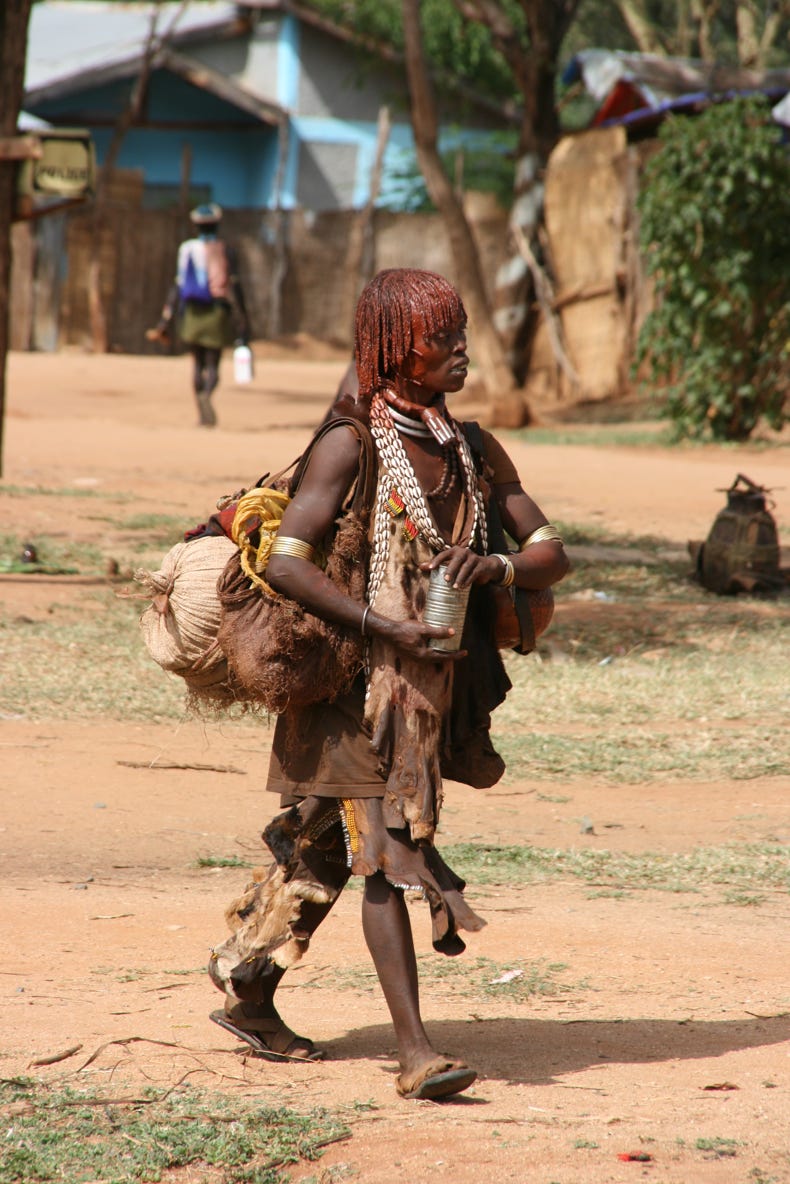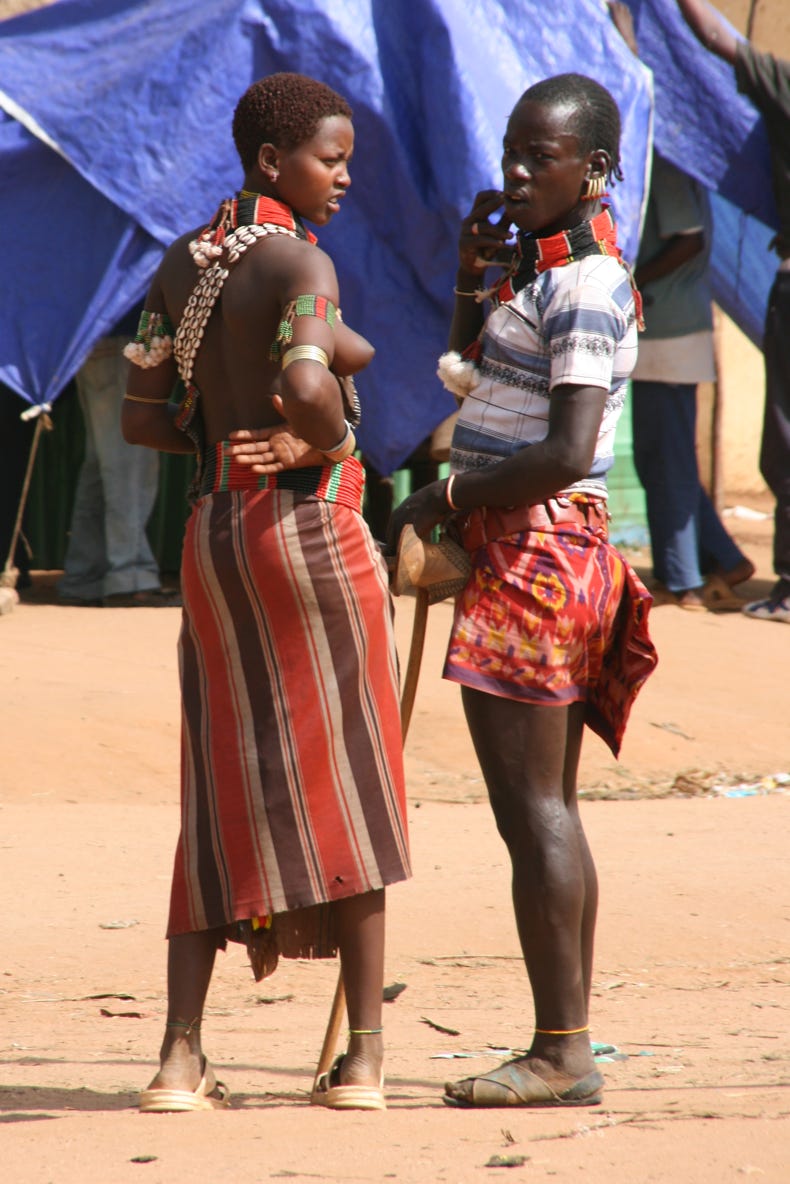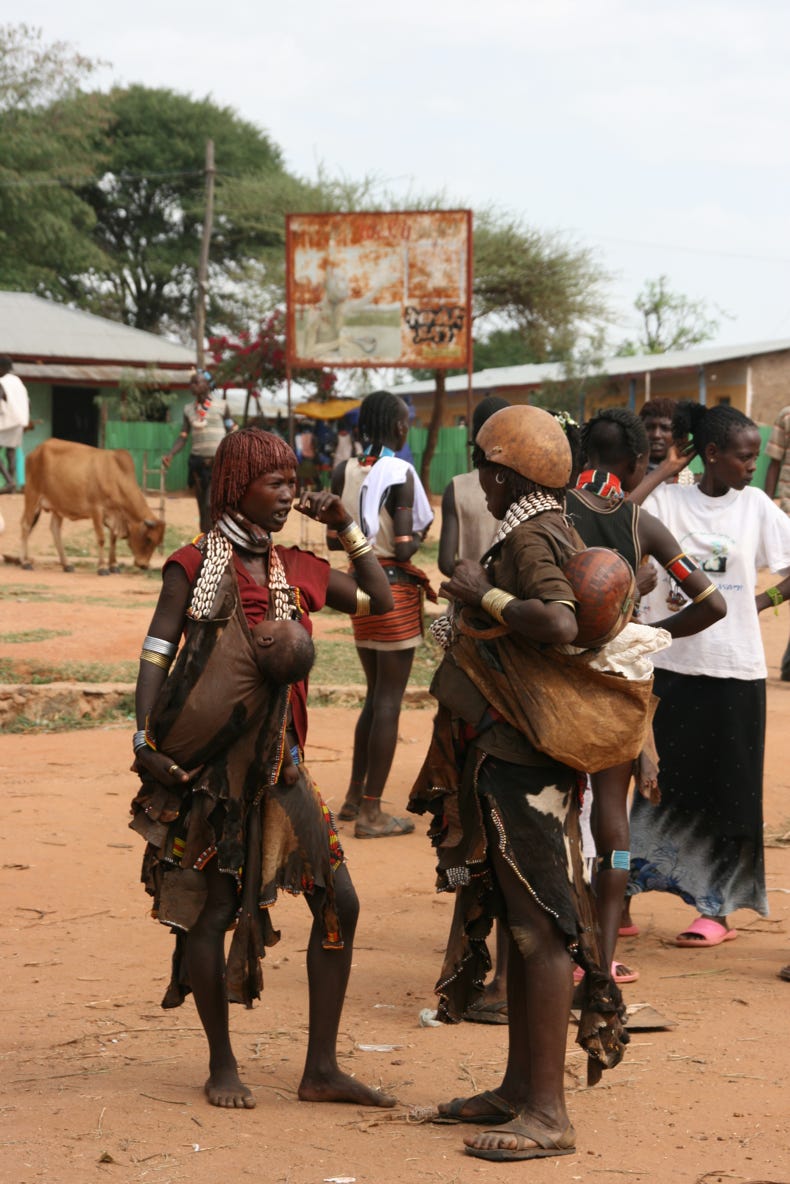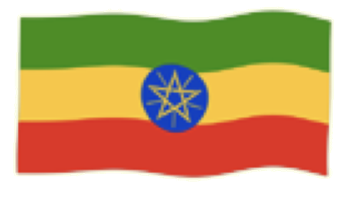

I woke this morning in Jinka at 6:00 am. History continued to repeat itself – there was no electricity and no running water. After a cold bucket shower, we had a breakfast of plain bread and plain omelette at the nearby Goh Hotel, just down the hill from our hotel, the Orit, which does not serve food.
As we left the hotel, the Jinka boys were still there at the gate, waiting. The youngest one had good news for me. The price of a plastic football had come down from 100 birr to just 50 birr, and he suggested I should use the opportunity of this bargain price to buy one for him. I politely gave him the answer you would expect (and I think he expected too). We left on good terms with waves and big smiles.
Our drive to Turmi in Ethiopia’s far south-western corner was only a relatively fairly short distance, but it was expected to take about five hours of driving because of the rough road conditions. We had only one stop planned, but it was a great one that took almost four and a half hours.
Saturday is market day in Dimeka, a small town that borders the territory of the Banna and the Hammer tribes. Both tribes still attire themselves in traditional dress, and the market was a riot of colour and activity. We arrived at 11:00 am, spent an hour and a half walking around, then had a long slow lunch of goat meat on injera followed by some of the strongest (and best!) coffee I have ever tried, before spending another hour or so exploring the market. Rather than trying to explain too much about the market, I will let a small sample of the photos I took today do the talking for me.
From Dimeka it was a short drive downhill to Turmi, a tiny Hammer village where we spent the night camping in tents beside the dry river. I had feared that mosquitoes might be a problem at this low altitude so close to the river, but there were none to be seen, and the dry river bed, even at this stage of the wet season, revealed the threat to Ethiopia’s food supply situation if the rains do not come soon. Our campsite can be seen in one of the images below.
Although it is the wet season here in southern Ethiopia, we have not had one day of rain during our travels in southern Ethiopia, which has been great for our travels but definitely not so good for the farmers.
The campsite did not serve any food, so at about 7:00 pm we took a short walk into town to have dinner at an eating house. To the accompaniment of 100 decibel music being played through miniature speakers, we had vegetable soup (the only kind on the menu - or it would have been if they actually had a menu) followed by goat meat on injera for Andrew and spaghetti for me. We ate outdoors in the shade of an acacia tree in the post-sunset dusk, with a refreshing breeze blowing a never-ending supply of flying ants into our faces. It was great!
Actually, to say there were no mosquitoes to be seen at the campsite is not quite the whole story. The toilets at the campsite, basic in the extreme, were actually alive with mosquitoes which seemed to be thriving in the green, stagnant water there. Andrew and I found a nearby tree preferable to the multiple health risks associated with the toilets. Today marked our third consecutive day with no running water - we are starting to look somewhat dusty.
